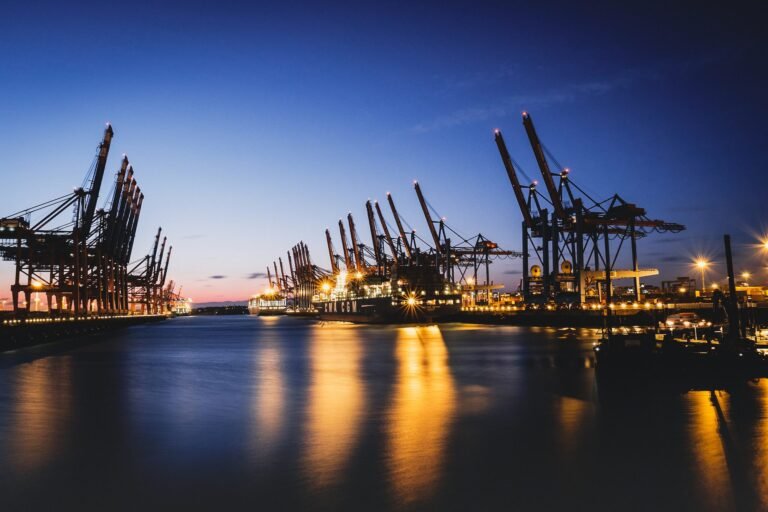Hamburg Invests €1.1 Billion in Major Port Infrastructure Expansion Project
Hamburg is making a significant investment of €1.1 billion in a major port infrastructure expansion project aimed at modernizing container terminal operations at the Waltershofer Hafen. This port currently handles approximately 90 percent of the largest container vessels calling at the Port of Hamburg.
The ambitious project includes widening the turning basin from 480 to 600 meters, enhancing the Elbe approach, and creating additional terminal yards. These enhancements will provide larger vessels with a more extensive water surface for turning maneuvers, ensuring improved navigational safety and operational efficiency for both current and future vessel sizes.
The Hamburg Port Authority (HPA) is overseeing the infrastructure works, which are scheduled to be completed by the mid-2030s. In addition to the public investment, Eurogate has pledged at least €700 million to expand the existing container terminal, with completion expected within two years after acquiring the newly developed land.
Senator Dr. Melanie Leonhard, Hamburg’s Minister for Economic Affairs, stated, “Today, we are laying the groundwork to ensure that Hamburg is well prepared to meet the challenges of tomorrow. This infrastructure will help ensure that large vessels are handled reliably and efficiently in the Port of Hamburg, strengthening its service capacity and reinforcing its role as a key hub on major international shipping routes.”
Jens Meier, CEO of Hamburg Port Authority, described the project as “a vital investment in the port’s long-term competitiveness” that sets the stage for future steps towards a climate-neutral port.
The expansion project also marks a significant move towards decarbonization, with plans to automate and electrify terminal processes. EUROKAI’s Managing Director, Tom Eckelmann, confirmed the initiation of transitioning from manual operations to an automated terminal concept with the goal of achieving decarbonization through complete electrification of throughput equipment.
The future terminal areas will remain in public ownership and be leased to EUROGATE under market-based conditions. The site will be fully integrated into the road and rail network, facilitating the implementation of an operating concept using electrically powered, autonomously guided vehicles—an essential step towards achieving climate neutrality by 2040.
While the project has received approval from authorities and dismissed all legal challenges, it still requires European Commission approval for the planned public funding. The state aid assessment process may take several years, with preliminary results from an upstream ex-ante review process anticipated in 2026.
Subscribe for Daily Maritime Insights
Sign up for gCaptain’s newsletter and never miss an update
— trusted by our 109,099 members

